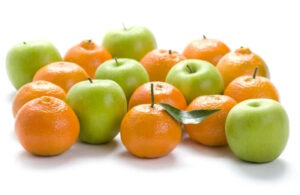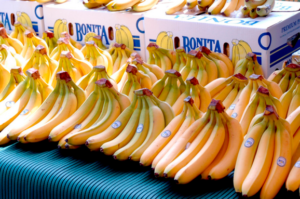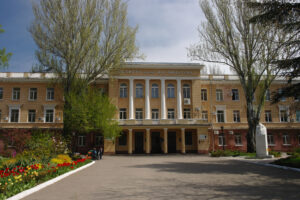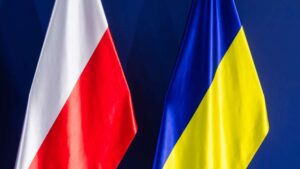
Ukraine exported 2.082 thousand tons of cheese in January-March 2023, which is 2.04 times more than during the same period of 2022. According to customs statistics, in monetary terms, exports were $10.212 million, which is 2.3 times more than a year earlier.
At the same time, the volume of cheese imports was 24.9% less – 7.084 thousand tons in January-March this year. In monetary terms, imports decreased by 8.5% to $43.520 million compared to the same period in 2022.
In this case, the main export of cheese was carried out in Kazakhstan (54.17% of supplies in monetary terms), Moldova (23.86%) and Jordan (5.39%), imports – from Poland (42.39%), Germany (21.23%) and the Netherlands (8.96%).
Ukraine imported 33.818 thousand tons of cheese in 2022 (a decrease of 38.7% compared to 2021), while exporting 8.989 thousand tons (an increase of 29.8%). Exports of butter rose by 29.9% to 14.104 thousand tons last year, while imports fell by 8.21 times to 1.128 thousand tons. Exports of milk and cream (condensed) amounted to 26.696 thousand tons (+19%), while imports – 1.214 thousand tons (a 6.4-fold decrease).

Ukraine imported 98.735 thousand tons of citrus fruits, which is 18.6% less compared to the same period of the previous year. In monetary terms, imports decreased by 0.5% – to $95.418 million.
Imports came mainly from Turkey (54.61%), Egypt (21.24%) and Greece (9.33%).
According to STS, Ukraine also imported 1.759 thousand tons of apples, pears and quinces in the first three months of the year, which is 43.8% less than in the first quarter of 2022. In monetary terms, imports were down 3.7% to $2.433 million.
At the same time, 19.615 thousand tons of similar products were exported, which is 14.5% less than in January-March 2022. In monetary terms, exports decreased by 25% to $7.877 million.
In addition, 6.428 tons of apples, pears and quinces were imported, which is 3.9 times less than in 2021. 46.429 tons of similar products (55.7% more) were exported.

Ukraine in January-March of this year reduced banana imports by 10.9% compared to the same period last year – up to 53.128 thousand tons.
According to customs statistics, in monetary terms imports of these products increased by 49% – to $56.303 million.
At the same time, imports were carried out mainly from Ecuador (60.50% of supplies in monetary terms), Costa Rica (20.29%) and Colombia (9.27%).
In 2022, Ukraine reduced imports of bananas by 40.6% year-on-year to 194,969 thousand tons and citrus fruits by 24.9% to 275,034 thousand tons.
The saturated market of Ukraine and its geographical location make our country an attractive market for foreign goods. However, importing goods to Ukraine is a complex process that requires knowledge of legislation, international relations, and customs clearance procedures. These and other issues were discussed by the founder of the Club of Experts Maxim Urakin and the President of the Ukrainian Exporters Club Yevheniia Lytvynova in a new video on the YouTube channel “Club of Experts”.
According to Maksym Urakin, before starting to import goods, it is necessary to conduct a detailed analysis of the market and legislation of Ukraine and the exporting country, as well as calculate all costs associated with delivery, customs clearance and taxes.
“This will help you draw up a clear action plan and avoid unpleasant situations during the import process,” the expert emphasized.
Yevheniia Lytvynova, President of the Ukrainian Exporters Club, also emphasizes the need to research the market and check the reputation of potential suppliers.
“Market research and checking the reputation of potential partners can help you find a reliable supplier,” she said.
According to Yevheniia Lytvynova, successful import of goods requires a thorough analysis of all aspects of the importer’s future business strategy.
“Before you start importing goods, you need to conduct a detailed analysis of the market, legal requirements and your capabilities, as well as calculate all the costs associated with delivery, customs clearance and taxes. This will help you draw up a clear plan of action and avoid unpleasant situations during the import process,” emphasized Lytvynova.
Regarding the documents to be prepared for importing goods, Lytvynova noted that the contract between the importer and exporter, invoice, transportation document (e.g., waybill or bill of lading), quality certificate and certificate of origin should be put in the forefront.
“In addition to these basic documents, additional documents may be required depending on the characteristics of the goods and the requirements of Ukrainian legislation. In particular, licenses, certificates of conformity, permits and other documents confirming compliance with safety, hygiene, environmental requirements, etc. may be required,” she explained.
Maksym Urakin also emphasized that studying local legislation and choosing a reliable supplier are also very important steps in the import process. According to the experts, in order to successfully sell goods in Ukraine, it is also necessary to take into account the difficulties that may arise after their delivery.
“Even if the goods are of high quality and interesting, they still need to be sold. But here in Ukraine, even after obtaining certificates and relevant permits, sales can be restricted due to various customs barriers, which leads to breach of contract. Therefore, we advise our companies to conduct a detailed analysis of the market and legal requirements. This will allow them to prepare the right documentation and comply with all requirements,” said Yevgeniya Lytvynova.
To increase export sales, experts recommend improving product quality and providing buyers with more information about their goods.
“Nowadays, many buyers check the quality of goods and their compliance with standards. If your products don’t meet the requirements, they simply won’t buy them,” emphasized Maksym Urakin.
In this regard, experts advise to focus on developing the quality of goods and their competitiveness. In addition, according to Maxim Urakin, it is important to participate in international exhibitions and forums where you can find new partners and establish contacts with potential suppliers.
Thus, according to the experts, it is very important to comply with all the requirements and norms set by law when importing goods, conduct a detailed market analysis and check the reputation of suppliers. It is also important to ensure the quality of goods and timely delivery, while considering all possible risks and costs. Importing goods can be a very profitable business if you organize it properly. Experienced experts advise to study the market and determine your capabilities to avoid unpleasant situations and ensure successful business development.
Watch the full video here:
Subscribe to the Experts Club channel here:
EXPERTS, EXPERTS CLUB, EXPORT, EXPORTERS CLUB, IMPORT, IMPORT_PRODUCTS, LITVINOVA, URAKIN

Filatov Institute of Eye Diseases and Tissue Therapy of the National Academy of Medical Sciences of Ukraine (Odessa, Ukraine) received as humanitarian aid the drug melphalan for the treatment of retinoblastoma, an intraocular malignant tumor in children.
As the Interfax-Ukraine agency was informed at the clinic, the drug is used to treat this tumor with the Institute’s own combined polychemotherapy method which implies injecting the drug directly into the tumor in combination with general polychemotherapy. This method allows to save the eye affected by the tumor and even vision in 80% of cases, including those with retinoblastoma stage 3-4.
The drug used for intraocular injections is melphalan, which is produced by Aspen Pharmacare Holdings Limited.

“Unfortunately, recently it has been impossible to purchase melphalan for injections in Ukraine. The institute has taken active steps to obtain the drug,” the institute reported.
Obtaining the drug was made possible thanks to the efforts of Olga Nikitchenko, head of the patronage service of the Ukrainian Ministry of Foreign Affairs, Ukrainian Ambassador to South Africa Lubov Abravitova, and Stavros Nikolau, senior executive director of Aspen Group, with support from the We Stand with Ukraine Foundation.
“The drug was delivered to the Filatov Institute. And literally the next day the first patient received treatment to save his vision and life,” the clinic reported.
Retinoblastoma is an intraocular highly malignant retinal tumor that develops mainly in children in the first two years of life and accounts for 89.3% to 98.2% of all intraocular neoplasms in children. Retinoblastoma incidence rate in the world is currently 1 case per 10-15 thousands newborns.
Due to asymptomatic course of the disease the majority of children (85-86%) come to the clinics with far advanced stage of retinoblastoma and even up to now many clinics have considered that the only way to save the life of the child was to remove the tumor together with the eye.
Retinoblastoma treatment in Ukraine is carried out at the Department of Pediatric Ophthalmopathology of the Institute of Eye Diseases and Tissue Therapy named after Filatov Institute of Eye Diseases and Tissue Therapy. V.P.Filatov Institute of Eye Diseases and Tissue Therapy of NAMS of Ukraine”. In recent years, the clinic has treated about 300 children with retinoblastoma aged from three months to eight years. One child receives from three to 20 injections, depending on the stage of the disease.

Ukraine and Poland have agreed on the resumption of transit of Ukrainian agricultural products. It will work at night from April 20 to 21, 2023, according to the press service of the Ministry of Agrarian Policy.
Additional control measures will be applied to the transit, of which market participants will be notified publicly and in working order in the near future.